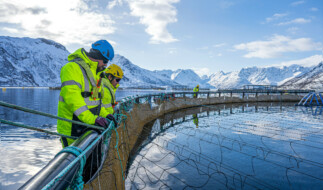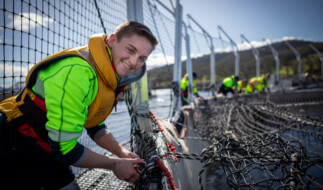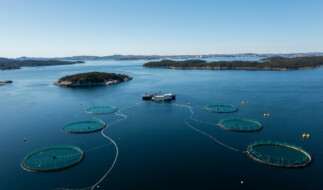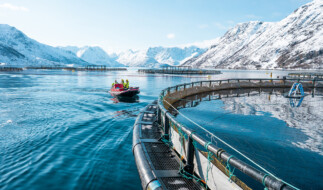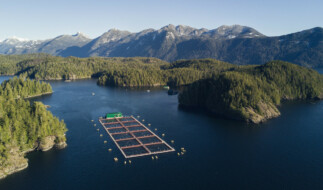Climate change is affecting all sectors, including salmon farming. As GSI, we aim to use our combined knowledge and innovative capacity to strengthen our ability to adapt and build resiliency to any changes in the ecosystems where we operate.
Adapting to a changing climate
Our industry is dependent upon a thriving and stable ocean ecosystem. Our operations are vulnerable to climate change, particularly rising water temperatures and ocean acidification. Which is why we must take action now to better understand the possible risks, look for adaptations, and focus on building long-term resiliency.
Within GSI, and specifically within our Fish Health and Welfare Task Force, we are looking to build knowledge and share expertise to support improved resiliency across our operations and supply chains.
Some of the ways we are working on this is by:
- Partnering with the Institute of Aquaculture at the University of Stirling to gather data and knowledge to monitor, model, and stress test possible impacts of a changing climate (such as warming waters) to allow us to proactively assess adaptations
- Hosting regular best-practice workshops to share experiences and knowledge to support wider learning and developments
- Working with partners and industry experts to gather the latest data and information to ensure we are informed on changing situations to adapt as quickly as possible
Through knowledge sharing and collective dialogue we are better positioned to make the right decisions on future actions.
The salmon sector has a high level of innovation and many different adaptation responses are already available or are under development. By working together, sharing information, and experiences, we can develop a knowledge base and tools that help identify the most appropriate actions considering different circumstances, and increasing resilience to climate change.Lynne Falconer, Research Fellow, University of Stirling.
Looking to the future
Aquaculture is one of the most technically advanced forms of animal protein production and offers great innovation potential in light of climate risks. By working together, we hope to accelerate this transition of identifying and integrating more climate resilient technology and approaches across the salmon farming sector and aquaculture more broadly.
With collective action and ongoing learning, resilient aquaculture systems can continue to sustain environmental, social, and economic benefits even in the face of a changing climate.
